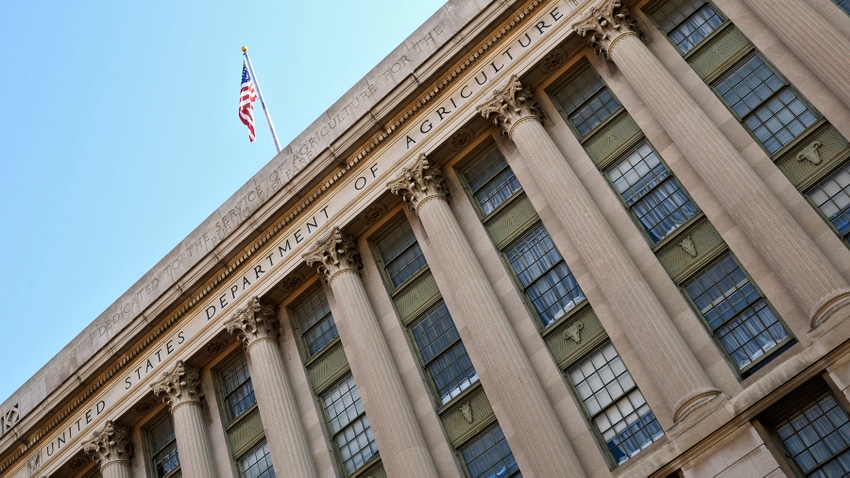February 14, 2023

The National Black Farmers Association has filed a lawsuit against USDA, claiming the Agriculture Department failed to keep promises it made to farmers of color that it would help socially disadvantaged producers pay off delinquent farm loans.
The promises led some growers to make new investments in their farms that are now in jeopardy because of the federal government’s failure to follow through on its commitments, the president of the association said.
John Boyd Jr., a corn, soybean and wheat grower from Baskerville, Va., and one of four plaintiffs in the lawsuit, said more than 6,500 farmers were affected by the USDA’s actions, which came after other farm organizations said the debt relief provisions in the American Rescue Plan Act of 2021 discriminated against white farmers.
Debt relief
The NBFA lawsuit was filed after Congress passed the Inflation Reduction Act of 2022 and President Biden signed the bill into law last September. Section 22008 of the IRA repealed Section 1005 of the American Rescue Plan, which provided Black, native American and other farmers of color with debt relief.
“What could be worse than having another president overturn legislation you enacted to help Black and other farmers of color during a pandemic; repealing your own legislation to take it away while they are being served foreclosure notices in a recession with the highest record of input costs in 40 years,” Boyd said. “I’m very, very disappointed in this legislative action.“We’re prepared to fight for debt relief for Black, Native American and other farmers of color all the way to the Supreme Court. I’m not going to stop fighting this.”
Historical studies and legal filings show USDA discriminated against minority-group farmers from the time new farm legislation was included in President Roosevelt’s New Deal in 1933 until recent years. As a result, historians say, the number of Black farmers has shrunk nationwide from nearly 1 million in 1920 to 35,000 in 2017.
Pigford cases
Black farmers sued USDA for discrimination in the late 1990s and again in the 2000s in what became known as the Pigford cases, but the growers never believed they received adequate compensation for the years of discrimination that occurred at USDA’s county Agricultural Stabilization and Conservation Service and later at Farm Service Agency offices.
President Biden campaigned on helping Black and other farmers of color in South Carolina and other states during the 2020 election. The administration pressed for including debt relief in the American Rescue Plan in 2021, which would have provided $5 billion in relief for farmers of color.
“The Section 1005 Loan Repayment program (in the American Rescue Plan) was a necessary step towards fixing those harms,” Boyd said. “To acknowledge and correct racism is not unconstitutional or racist.”
Soon after passage of the American Rescue Plan, several farm organizations filed a lawsuit charging the ARP provisions discriminated against white farmers. A Federal judge agreed and stopped USDA from implementing Section 1005. USDA attorneys said fighting the ruling in court would have required years of litigation.
Two provisions
In 2022, the Democratic-controlled Congress included two provisions in the Infrastructure Act that promised to help all U.S. farmers experiencing problems with repaying their USDA farm loans because of the pandemic and supply chain issues along with repealing Section 1005 of the American Rescue Plan.
One allocated $3.1 billion for helping all distressed farmer borrowers, and the second $2.2 billion for farmers who were affected by discriminatory practices at USDA offices. USDA applied $800 million of the first allocation to pay down the debt of all delinquent borrowers shortly after the Infrastructure Act was passed and signed into law.
The Agriculture Department is continuing to work on implementing the second provision for Black, native and Hispanic American farmers, according to Agriculture Secretary Tom Vilsack.
“My dad always said if you give somebody your word, you should own up to it,” Boyd said. “We signed a contract (under the American Rescue Plan Act Section 1005), and then they repealed the whole measure. I see that as a broken promise.”
Boyd said the promise of debt relief, which would have covered up to 120% of the debts of farmers of color, led some to buy new equipment or make other investments in their farms that are now in jeopardy because of the uncertainty over the debt relief program.
The NFBA will continue to put pressure on USDA until the second provision of the Infrastructure Act is implemented, he said.
About the Author(s)
You May Also Like






